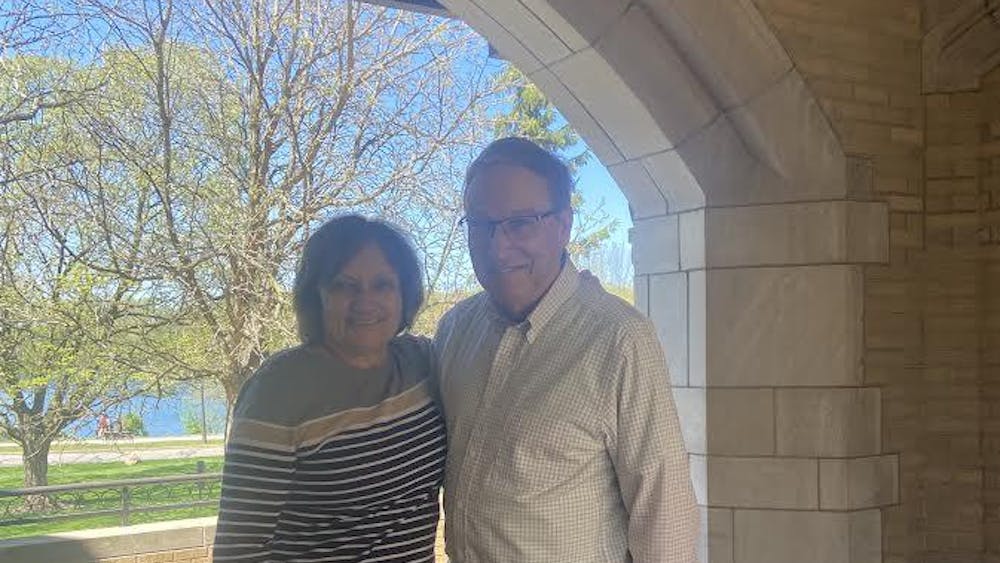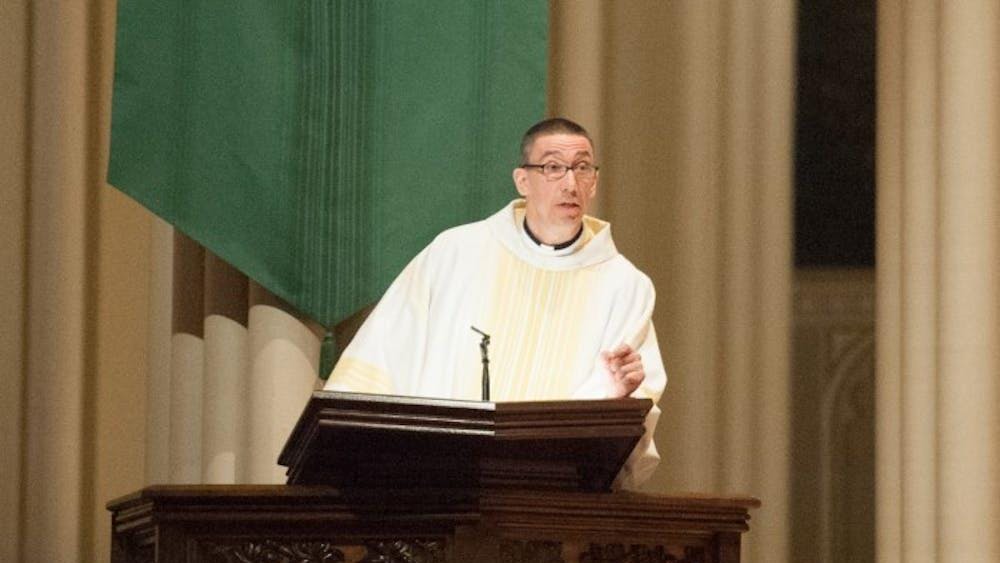To commemorate the 50th anniversary this month of the 16th Street Baptist Church bombing in Birmingham, Ala., Notre Dame's Multicultural Student Programs and Services launched its "Martin Luther King, Jr. Series for the Study of Race," with a presentation by Dr. Wilson Fallin, Jr. Ph.D. to speak Monday night.
Fallin, a professor of history at the University of Montevallo in Montevallo, Ala., is the author of two books and the president of Birmingham-Easonian Baptist Bible College. He began his work in the Civil Rights movement at Moorehouse College while Dr. Martin Luther King, Jr. was a part-time professor at the College.

In Monday's lecture, titled "Spirituality, the Birmingham Bombing, and the Birmingham Civil Rights Movement," Fallin focused on the Birmingham Civil Rights movement, which began in 1956.
"The Civil Rights movement was one of the most significant movements for social and racial justice in the history of the [United States]," he said. "And no campaign was more important than that in Birmingham."
Fallin said the 1963 bombing was prompted by segregation from the 1950s and on.
"Birmingham, Ala., was founded in 1871 during the reconstruction era by former plantation owners determined to uphold racial segregation," he said.
"By the 1950s, Birmingham was "one of the most segregated and racially polarized cities in the U.S." Between 1945 and 1962, bombings of African-American businesses and homes were not infrequent, he said. Although the numbers have been disputed, Fallin said historians generally agree there were between 20 and 80 racially motivated bombings in Birmingham during that time period, earning the city the name "Bombingham." Most, if not all, incidents were never investigated.
Fallin said the most interesting aspect was the role of the African-American churches in the Birmingham Civil Rights movement because in 1956, the state government effectively outlawed the National Association for the Advancement of Colored People (NAACP) from Alabama. As a result, a group of black ministers came forward to create the Alabama Christian Movement for Human Rights.

"It was a movement of churches," he said. "The church made it possible.
The black church had a strong dose of liberation theology - and that united them."Religion, when it is believed and practiced, is a powerful element in one's life and in one's society."
The prominence of the church in the Civil Rights movement, Fallin said, was the reason that on the night of Sept. 14th, 1963, four members of the Ku Klux Klan broke into the 16th Street Baptist Church and planted a time bomb, scheduled to detonate at 10:30 a.m. Sunday morning.
"Ten-thirty Sunday morning. They knew. They knew there would be people there - they knew people would die," Fallin said. "It was a crime committed out of sheer revenge and hate."
But, Fallin said, Birmingham had a lasting significance for the civil rights movement nationwide. The tragedy of losing four young girls to an act of hatred drew national attention to the city and to the issue of institutionalized racism in the United States.
"It took people off the fence, and galvanized more sympathy for the cause," he said. "Birmingham, in my view, saved the movement."
Contact Maragaret Hynds at mhyndes@nd.edu











